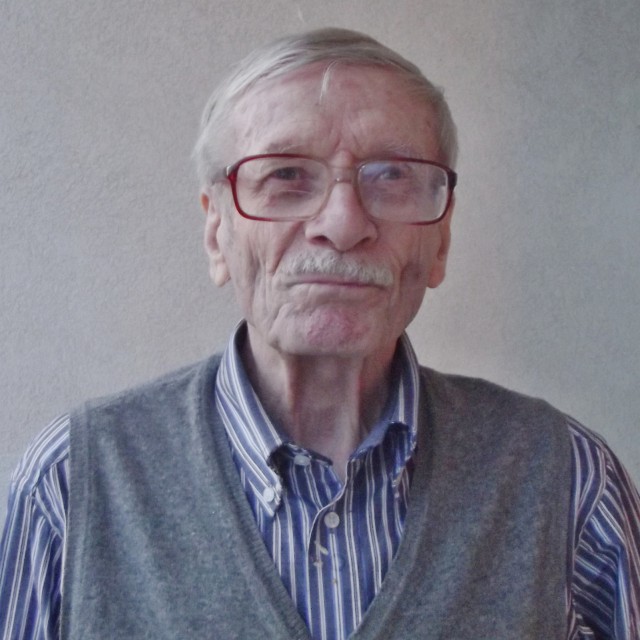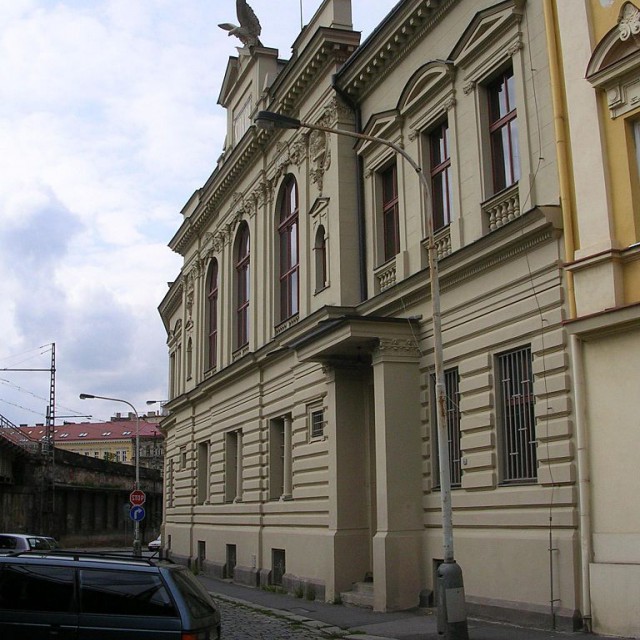When the Ruhrgebiet was on fire
For Antonín Kachlík, the Sokol club house in Prague-Karlín set the scene for the events that would fundamentally change his further life. After graduation, he could not get a job and in the fall of 1942, he was assigned to forced labor. He had come to the club house, which served as a place of assembly of the draftees, and wait for further instructions. After a week, he and others got on a train that took them to the heart of the German Reich, where they were forced to toil for the victory of the Empire. At the time, the Ruhr industrial area was being devastated by massive Allied air raids and the Germans needed labor force for sweeping away the debris that was left after the attacks. Antonín and dozens of other young Czechs were trained as fire fighters at the police department of the air defense (Luftschutzpolizei) and in December 1942, they saw action for the first time. The area was being raided repeatedly every day after dark. The raid was divided into three phases: the first was supposed to light up the landscape with lighting bombs, the second had the goal of destroying the lit targets and the third focused on dropping phosphorous bombs that destroyed everything alive. “When we heard the airstrikes in the Netherlands, which was right across the border, we would already get dressed, because when the sirens sounded, we had to be in full gear on the cars within two minutes. We drove to the places where the first bombs fell. As it was prohibited to have the lights on, the road was visible only from a number of red marker lights”. After 45 minutes of bombing, twenty thousand dead were left in the streets. Torn, scorched and boiled bodies from the water of the fire hoses had to be pulled from the rubble and thrown onto trucks. For the nineteen-year old Antonín, it was an appalling experience. If you did not want to end up in a madhouse as some of his friends did, you had to grow apathetic. After returning to Prague, Antonín Kachlík knew: “having survived those raids, it would be hard to break me with something else”.
Hodnocení
Abyste mohli hodnotit musíte se přihlásit!
Trasy
Příběh není součastí žádné trasy.
Komentáře

Antonín Kachlík
Antonín was born on February 26, 1923, in the village of Rozdělov, which is now part of the city of Kladno. He grew up in Malá Dobrá, before the family moved to Prague in 1931. He was given an opportunity of a better education studying at the business academy in Karlín. During the war, he joined the underground resistance movement, printed and distributed leftist leaflets. In 1942, he graduated and as he did not find a job, on October 1, he was sent to forced labor in Germany. He worked as a member of the fire brigades in the Ruhr area, where the Allies carried out devastating blanket raids. He also participated in saving the cathedral in Cologne. He took advantage of a holiday and escaped forced labor. Until the end of the war, he then lived under false papers in Prague, where he continued in his activities in the underground resistance movement. At about that time, he joined the Communist Party. After the war, he studied at the Academy of Political and Social Studies (VŠPS). In 1946, he enrolled at the FAMU and left the VŠPS. He graduated in 1950, and since he could not take up a position at the State Film Barrandov, he went to work as a dramaturge in theaters operating in Zlín, where he initiated the creation of new plays in the style of socialist realism. In the years 1952-1954, he served in the military. At that time, he married the actress Květa Houdlová. His career in the film industry only came later. First, he became second director and worked with Josef Mach and Bořivoj Zeman. Kachlík’s independent film debut was “Červnové dny” (June Days), which was based on Kachlík’s original screenplay, in 1961. His next authored film was “Bylo nás deset” (We Were Ten). Both films were based on original novels. Antonín Kachlík is also the director of the much acclaimed film “Já, truchlivý bůh” (I, the Mournful God), which was later banned to be screened and locked away from the public in a safe. This 1969 film is based on a novel by Milan Kundera. In the days of the normalization, Kachlík made a biographical film about the communist leader Klement Gottwald called “Dvacátý devátý” (Twenty-ninth), for which he has since been criticized. Since then, his name has also been on a list of StB collaborators. After 1989, he has never come back to film directing. In the years 1971-1992, he taught at the FAMU. He wrote and published five books. His last screenplay was published in 2003 and dealt was entitled How Švejk Was Born and Hašek Died.


